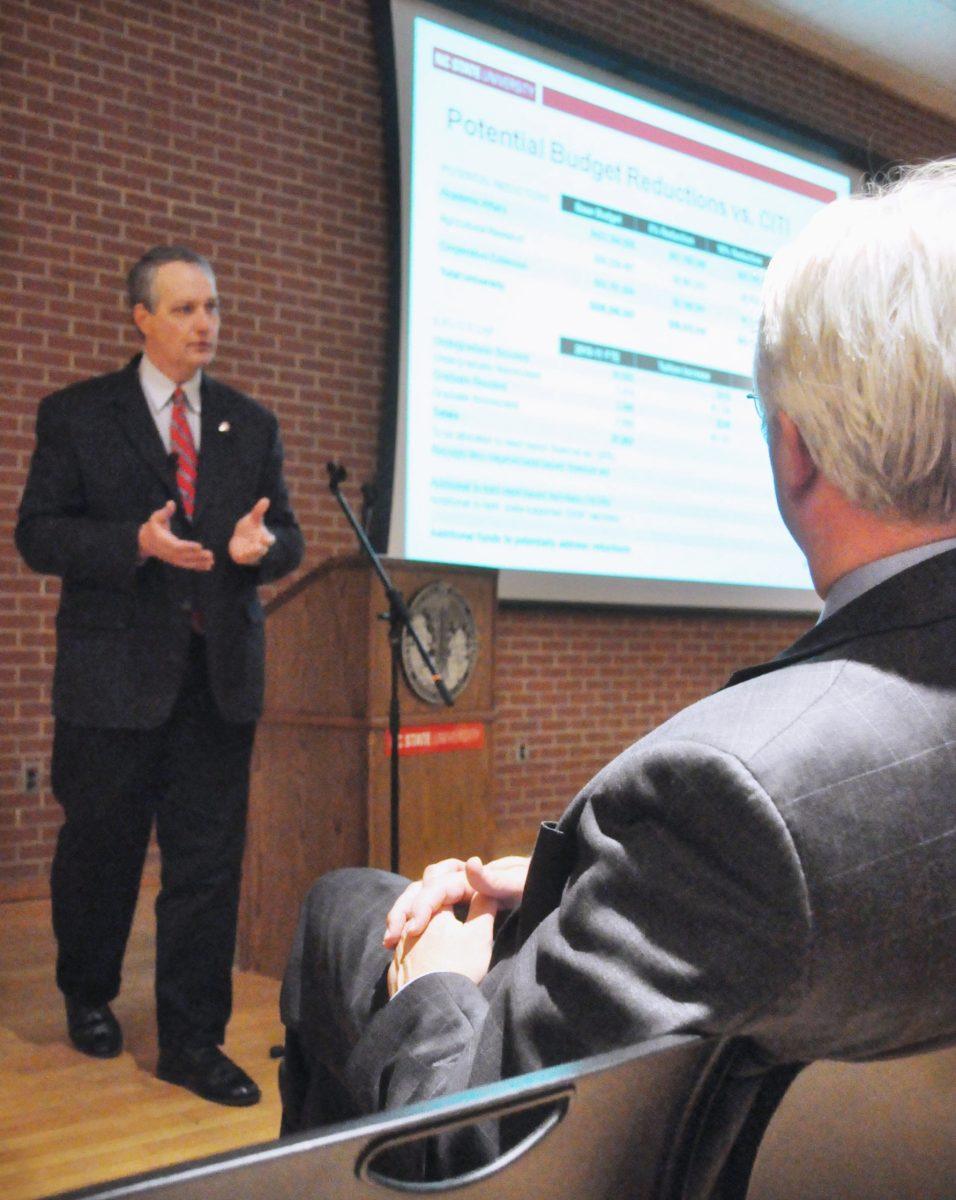
© Student Media 2010
Despite the opportunity to voice opinions on tuition directly to Chancellor Woodson, Student Body President Kelly Hook and the Tuition Review Advisory Committee, only a hand full of students showed up to Talley Ballroom Thursday night.
Chancellor Randy Woodson spoke to a near empty crowd Thursday night at the University’s first town hall meeting on tuition.
Student Body President Kelly Hook said she was disappointed at the event’s turnout, which discussed the University’s tuition increase process, and said she wasn’t sure of the reason for students’ absence.
“Honestly, I don’t know,” Hook said. “We had tents on Centennial [Campus] and the Brickyard despite the rain.”
According to Woodson, the town hall meeting intended to explain how funds collected through tuition are used to support academic programs and explain how decisions regarding how tuition is raised are made.
On the heels of a $900 to $950 tuition increase passed in July, the open forum was available for students to present issues and questions about the tuition-increase process and to pose views to the Tuition Review Advisory Committee who will have their final meeting Oct. 1.
Woodson’s presentation also highlighted the University’s budget issues, how the University compares to peer institutions in tuition and state appropriated funds, and how the University fits within the General Assembly’s state budget.
Woodson said one of the reasons the university system is struggling with raised tuition is because of how much the state has invested in higher education in previous years. According to Woodson, the University is being hit hard because it has relied on a state budget which is now suffering.
“We get more money per student from the state than any university we compare ourselves to,” Woodson said. “A 10 percent cut from the state is 10 percent of a much larger piece of our budget.”
At presentation’s conclusion, Woodson fielded several questions from the audience, including one which questioned the chancellor’s views on major-specific tuition.
Woodson said he was against making students’ tuitions based solely on their majors, although he said it’s used at other institutions.
“I really hope we don’t have to go down that road,” Woodson said. “I don’t want students to choose what they study based on the cost.”
He acknowledged, for example, that a system of differing undergraduate tuitions would force engineering and management majors to incur higher tuitions than some other majors because of the price of the programs.
After the event, Woodson said he wasn’t sure how many students, faculty or parents were going to attend the event.
“I didn’t know what to expect,” Woodson said. “The crucial thing is that you make yourself available for the conversation.”
Hook said she hopes in the future students take advantage of these opportunities to voice student opinions to University leaders.
“I hope that students are more engaged in the future and partake in opportunities to provide feedback to administration,” Hook said.